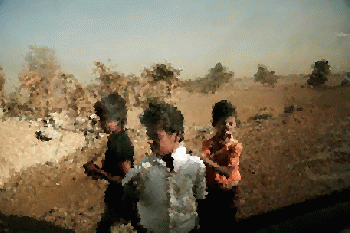Reprinted from michael-hudson.com
The U.S. is Saving the Financial Sector, not the Economy
Before juxtaposing the U.S. and alternative responses to the corona virus's economic effects, I would like to step back in time to show how the pandemic has revealed a deep underlying problem. We are seeing the consequences of Western societies painting themselves into a debt corner by their creditor-oriented philosophy of law. Neoliberal anti-government (or more accurately, anti-democratic) ideology has centralized social planning and state power in "the market," meaning specifically the financial market on Wall Street and in other financial centers.
At issue is who will lose when employment and business activity are disrupted. Will it be creditors and landlords at the top of the economic scale, or debtors and renters at the bottom? This age-old confrontation over how to deal with the unpaid rents, mortgages and other debt service is at the heart of today's virus pandemic as large and small businesses, farms, restaurants and neighborhood stores have fallen into arrears, leaving businesses and households - along with their employees who have no wage income - to pay these carrying charges that accrue each month.
This is an age-old problem. It was solved in the ancient Near East simply by annulling these debt and rent charges. But the West, shaped as it still is by the legacy of the Roman Empire, has left itself prone to the massive unemployment, business closedowns and resulting arrears for these basic costs of living and doing business.
Western civilization distinguishes itself from its Near Eastern predecessors in the way it has responded to "acts of God" that disrupt the means of support and leave debts in their wake. The United States has taken the lead in rejecting the path by which China, and even social democratic European nations have prevented the corona virus from causing widespread insolvency and polarizing their economies. The U.S. corona virus lockdown is turning rent and debt arrears into an opportunity to impoverish the indebted economy and transfer mortgaged property and its income to creditors.
There is no inherent material need for this fate to occur. But it seems so natural and even inevitable that, as Margaret Thatcher would say, There Is No Alternative.
But of course there is, and always has been. However, resilience in the face of economic disruption always has required a central authority to override "market forces" to restore economic balance from "above."
Individualistic economies cannot do that. To the extent that they have a strong state, they are not democratic but oligarchic, controlled by the financial sector in its own interest, in tandem with its symbiotic real estate sector and monopolized infrastructure. That is why every successful society since the Bronze Age has been a mixed economy. The determining factor in whether or not an economic disruption leaves a crippled economy in its wake turns out to be whether its financial sector is a public utility or is privatized from the debt-strapped public domain as a means to enrich bankers and money-lenders at the expense of debtors and overall economic balance.
China is using an age-old policy used ever since Hammurabi and other Bronze Age rulers promoted economic resilience in the face of "acts of God." Unless personal debts, rents and taxes that cannot be paid are annulled, the result will be widespread bankruptcy, impoverishment and homelessness. In contrast to America's financialized economy, China has shown how natural it is for society simply to acknowledge that debts, rents, taxes and other carrying charges of living and doing business cannot resume until economic normalcy is able to resume.
Near Eastern protection of economic resilience in the face of Acts of GodAncient societies had a different logic from those of modern capitalist economies. Their logic - and the Jewish Mosaic Law of Leviticus 25, as well as classical Greek and Roman advocates of democratic reform - was similar to modern socialism. The basic principle at work was to subordinate market relations to the needs of society at large, not to enrich a financial rentier class of creditors and absentee landowners. More specifically, the basic principle was to cancel debts that could not normally be paid, and prevent creditors from foreclosing on the land of debtors.
All economies operate on credit. In modern economies, bills for basic expenses are paid monthly or quarterly. Ancient economies operated on credit during the crop year, with payment falling due when the harvest was in - typically on the threshing floor. This cycle normally provided a flow of crops and corve'e labor to the palace, and covered the cultivator's spending during the crop year. Interest typically was owed only when payment was late.
But bad harvests, military conflict or simply the normal hardships of life frequently prevented this buildup of debt from being paid. Mesopotamian palaces had to decide who would bear the loss when drought, flooding, infestation, disease or military attack prevented the payment of debts, rents and taxes. Seeing that this was an unavoidable fact of life, rulers proclaimed amnesties for taxes and these various obligations incurred during the crop year. That saved smallholders from having to work off their debts in personal bondage to their creditors and ultimately to lose their land.
(Note: You can view every article as one long page if you sign up as an Advocate Member, or higher).






